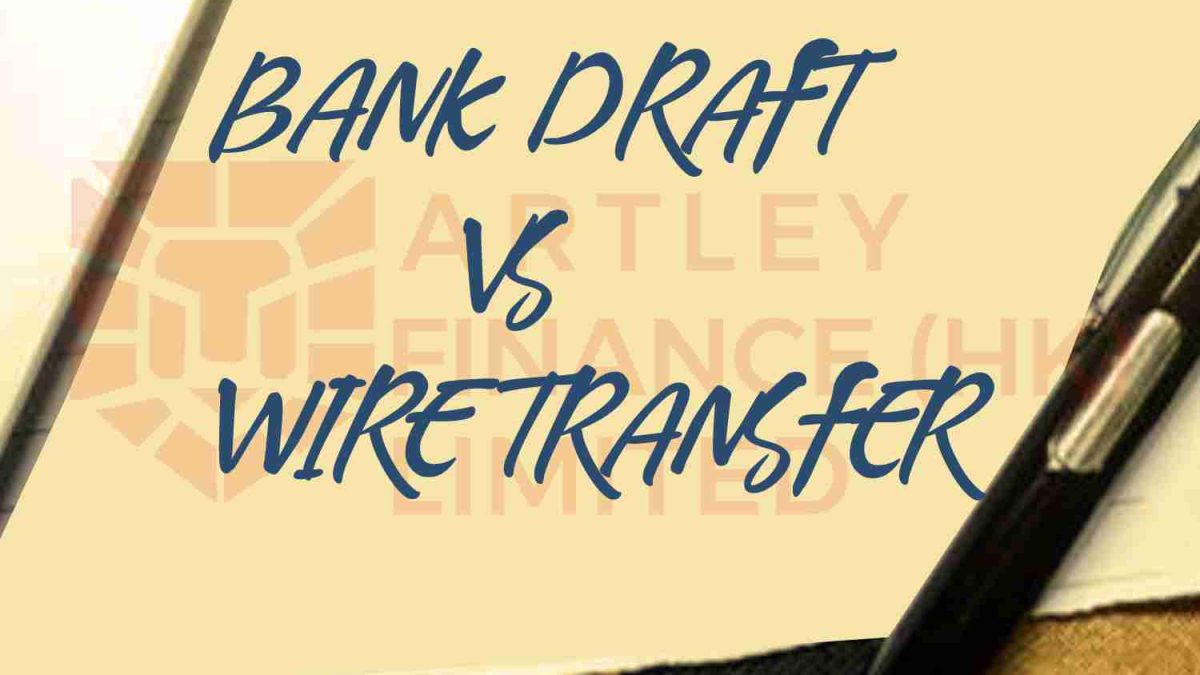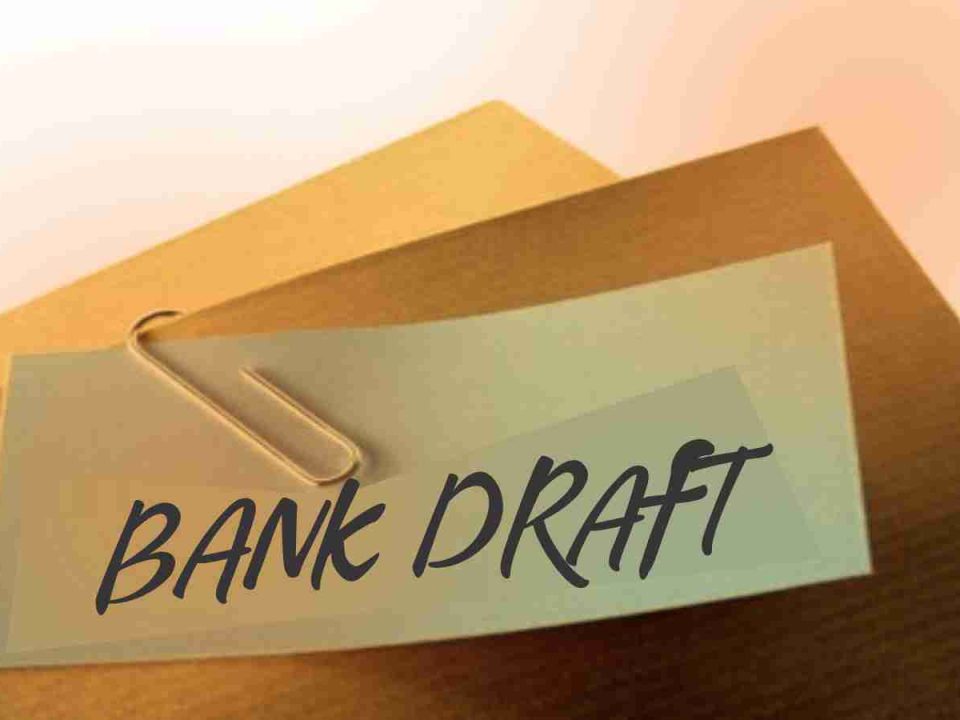Bank Draft vs. Wire Transfer: Which is Safer for Large Transactions?

The Role of Bank Drafts in Ensuring Secure Payments
February 14, 2025
BG vs SBLC: Understanding the Key Differences Between Bank Guarantees and Standby Letters of Credit
February 19, 2025Bank Draft vs. Wire Transfer: Which is Safer for Large Transactions?
When handling large transactions, security and reliability are top priorities. Whether you’re purchasing property, making a business deal, or transferring funds internationally, choosing the right payment method is crucial. Two of the most common options are bank drafts and wire transfers. But which is safer? This article compares these two payment methods, outlining their security features, advantages, and potential risks to help you make an informed decision.
Understanding Bank Drafts and Wire Transfers
What is a Bank Draft?
A bank draft is a secure payment instrument issued by a bank on behalf of a customer. The bank withdraws the specified amount from the customer’s account and issues a draft payable to the recipient. Since the bank guarantees the payment, bank drafts are widely accepted for large transactions where security is paramount.
What is a Wire Transfer?
A wire transfer is an electronic transfer of funds between banks or financial institutions. Wire transfers are commonly used for both domestic and international transactions, offering fast and direct fund transfers. This method is preferred for high-value transactions due to its speed and efficiency.
Security Comparison: Bank Draft vs. Wire Transfer
| Feature | Bank Draft | Wire Transfer |
| Fraud Risk | Low – Hard to counterfeit, issued by a bank | Moderate – Can be targeted by scammers/hackers |
| Reversibility | No – Cannot be canceled once issued | No – Once sent, it cannot be reversed |
| Processing Time | Slow – Takes several days to clear | Fast – Instant or same-day transfer |
| Authentication | Secure – Issued with bank verification | Secure – Requires sender/receiver verification |
| Physical vs. Digital | Physical document | Fully digital |
Related: The Role of Bank Drafts in Ensuring Secure Payments
Advantages of Bank Drafts: Secure and Reliable Payments
1. Guaranteed Payment
One of the biggest advantages of a bank draft is that it offers guaranteed payment. Unlike personal checks, which can bounce due to insufficient funds, bank drafts are pre-funded and backed by the issuing bank. This means that when a bank draft is issued, the bank has already set aside the specified amount, ensuring that the recipient receives full payment without any risk of non-sufficient funds (NSF). This makes bank drafts a highly reliable choice for large financial transactions, such as property purchases and business deals.
2. Fraud Prevention and Security Features
Bank drafts incorporate various security features to prevent fraud and counterfeiting, including watermarks, holograms, special inks, and unique serial numbers. These advanced measures enhance authenticity and make it extremely difficult for unauthorized alterations or duplications.
These elements make it extremely difficult for fraudsters to alter or replicate a bank draft. Additionally, since the funds are guaranteed by the bank, both the payer and the recipient can trust that the transaction is secure. This level of protection makes bank drafts a preferred option for transactions where safety and authenticity are a priority.
3. Ideal for Large Transactions
Bank drafts are commonly used for high value transactions where security and reliability are crucial. Examples include: Because the payment is guaranteed, recipients can confidently accept a bank draft without worrying about financial disputes or failed payments.
4. No Chargebacks or Payment Reversals
Unlike credit card payments or PayPal transactions, bank drafts do not allow chargebacks or reversals. Once a bank draft is issued and delivered to the recipient, the transaction is final. This eliminates the risk of payment disputes, making bank drafts an excellent option for businesses that want to avoid fraudulent chargeback claims.
This feature is particularly beneficial for sellers of high-value goods, international vendors, and service providers who want to ensure they receive payment without the risk of a buyer canceling or disputing the transaction after the fact.
Advantages of Wire Transfers: Fast, Secure, and Global Transactions
1. Speed & Efficiency: Instant Fund Transfers
One of the biggest advantages of wire transfers is their speed. Unlike traditional payment methods like checks or bank drafts, wire transfers allow for near-instantaneous money transfers. In many cases, domestic wire transfers are completed within a few minutes to a few hours, while international wire transfers typically process within one to two business days.
This makes wire transfers an ideal choice for: Time sensitive payments such as closing real estate deals or funding urgent business transactions and emergency financial needs, like sending money to family members or paying last-minute bills or business to business (B2B) payments, where fast settlement is required to maintain supply chain efficiency. The ability to transfer funds quickly ensures that recipients get their money without unnecessary delays, reducing risks associated with late payments.
2. Convenience: 100% Digital Transactions
Wire transfers eliminate the need for physical payment methods like cash, checks, or bank drafts. The entire transaction is conducted digitally, allowing senders to initiate transfers from:
- Online banking platforms
- Mobile banking apps
- Bank branches or financial service providers
This level of convenience means users can send money securely without visiting a bank, making wire transfers an excellent option for businesses and individuals who prioritize efficiency. Additionally, digital processing reduces the risk of lost, stolen, or damaged payment instruments.
3. International Use: Seamless Global Payments
Wire transfers are widely accepted worldwide, making them one of the best payment methods for international transactions. Most banks and financial institutions across the globe support wire transfers through secure networks.
Because wire transfers can be conducted in multiple currencies, businesses engaged in global trade rely on them to send and receive payments across borders. The ability to facilitate cross-border transactions quickly and securely helps companies manage international suppliers, pay overseas employees, and handle foreign investments with ease.
4. Tracking & Transparency: Real-Time Monitoring & Digital Receipts
Wire transfers provide full transparency and tracking capabilities unlike traditional payment methods. Senders and recipients can monitor the transaction status in real time, ensuring funds reach the correct destination without delays or errors.
Key benefits include digital receipts and confirmation numbers, which serve as proof of payment, along with real-time tracking that allows users to monitor the progress of funds. Additionally, wire transfers provide audit-friendly records, helping businesses and individuals maintain clear and accurate financial documentation.
Potential Risks and Drawbacks of Bank Drafts and Wire Transfers
While both bank drafts and wire transfers provide secure payment solutions, each method comes with certain risks and drawbacks that users should consider before making large transactions.
Risks Associated with Bank Drafts
One of the primary drawbacks of bank drafts is the processing delay. Since they are physical payment instruments, bank drafts require time to clear, which can slow down access to funds, particularly in urgent transactions. Additionally, bank drafts carry the risk of loss or theft. Being physical documents, they can be misplaced or stolen, potentially leading to complications and delays in payment processing. Replacing a lost or stolen bank draft often requires extensive verification procedures, which can add further delays.
Another disadvantage of using bank drafts is the issuance fees imposed by banks. Depending on the financial institution, the cost of obtaining a bank draft can be higher than other payment options, especially when compared to wire transfers. For those making frequent payments, these fees can accumulate and become a financial burden.
Risks Associated with Wire Transfers
Wire transfers, while efficient and fast, also come with their own set of risks. A significant concern is the potential for scams and fraud. Since wire transfers are typically irreversible once processed, fraudsters often target individuals and businesses by posing as legitimate payees. Once the funds are sent, recovering them can be extremely difficult or even impossible.
Banking errors also present a risk in wire transfers. If the sender enters incorrect recipient details, the funds could be sent to the wrong account, requiring a complex and time-consuming recovery process. In some cases, retrieving lost funds may not be possible, leading to financial losses. Additionally, international wire transfers can be costly due to high service fees and currency conversion charges imposed by banks. Businesses and individuals conducting frequent cross-border transactions may find these fees to be a considerable expense.
Which Payment Method is Safer for Large Transactions?
Determining whether a bank draft or wire transfer is the safer option depends on the specific nature of the transaction. A bank draft is an ideal choice when security is the top priority, particularly for large, one-time payments such as real estate purchases or legal settlements. Since bank drafts are guaranteed by the issuing bank and contain advanced security features, they provide a fraud-resistant method of transferring significant sums of money.
On the other hand, wire transfers are the preferred option when speed is essential, especially for business transactions or international payments. When sending funds via wire transfer, it is crucial to ensure that the recipient is trustworthy and that all banking details are verified before processing the payment. For maximum security, individuals and businesses can use an escrow service when dealing with unfamiliar parties to reduce the risk of fraud.
Contact Artley Finance (HK) Limited today to secure bank draft and wire transfer at competitive rates!
Website: www.artleyfinance.com
Email: finance@artleyfinance.com


